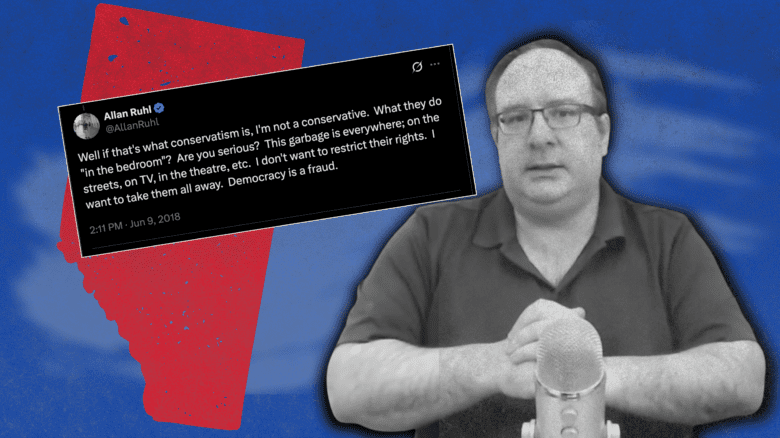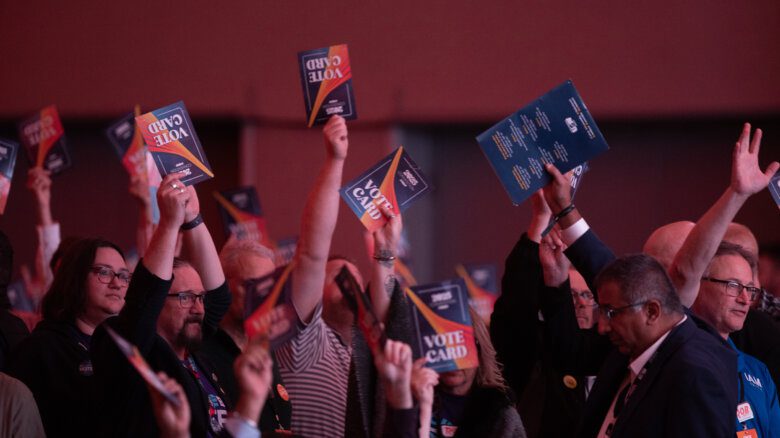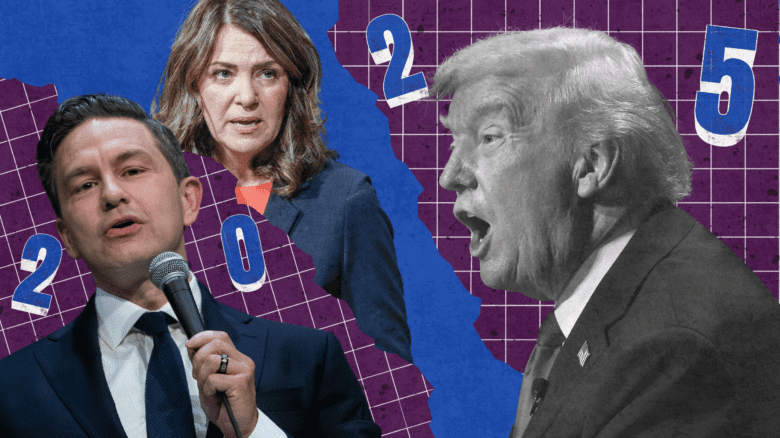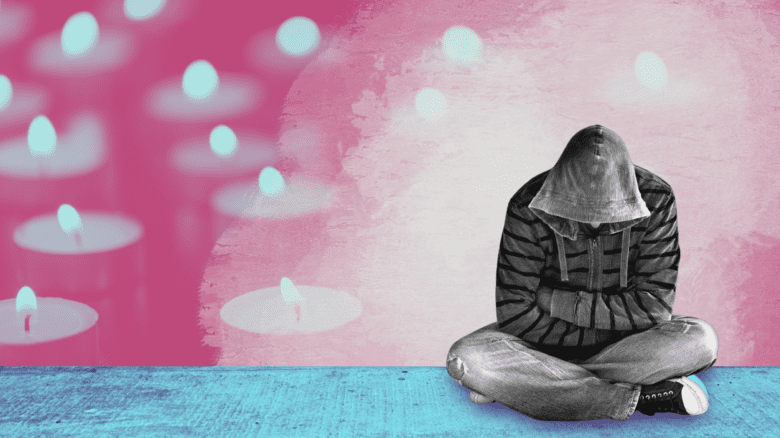Last Wednesday, Conservative Party leader Erin O’Toole was ousted from his party’s leadership after a vote of non-confidence in caucus, leaving questions around the direction the party will take in the future—or if it will even remain a united party going forward. O’Toole made a big show of outreach to the LGBTQ2S+ communities on the night he was elected as party leader, saying that he wanted more people to “see a Conservative when they look in the mirror.” But his record as an advocate for the queer and trans communities is spotty at best, and was used as a wedge by O’Toole right up until the very end.
During the first post-Harper leadership contest within the party in 2017, O’Toole ran as a cheerful moderate, more on the Red Tory side than the libertarian that Maxime Bernier was casting himself at the time (before he decided to go full-in as a hard-right culture war extremist). O’Toole ultimately came in third place, besting social conservative Brad Trost, and legitimate Red Tory Michael Chong on two early ballots, but ultimately lost out to Bernier and victor Andrew Scheer. At the time, Bernier was going to multiple Pride parades, explaining his attendance by evoking the libertarian principle of keeping the state out of the personal lives of Canadians. Kellie Leitch and Chong also attended Toronto Pride that year, but the only Conservative leader to have actually marched in a Pride was Rona Ambrose when she was interim leader.
O’Toole won his second leadership campaign in 2020 by courting social conservative votes in the party after casting himself as a “true blue conservative,” and he moderated his declared support for the queer and trans communities through that lens on a regular basis. For example, he made his attendance at any Pride parades conditional on them allowing police to also march in uniform. (Does it need to be said that an ally who imposes conditions is not really an ally?) He also made a production of supporting fellow leadership candidate Derek Sloan, arguing against the caucus expelling him for racist comments he made about Theresa Tam, Canada’s chief public health officer, because O’Toole needed the second-choice votes of Sloan’s social conservative supporters. Once O’Toole secured the leadership, he found the first available excuse to give Sloan the boot.
“O’Toole won his second leadership campaign in 2020 by courting social conservative votes in the party after casting himself as a ‘true blue conservative.’”
Last Pride, O’Toole released a video that had all of the sincerity of a corporate Pride video, and spent the month having MPs Michelle Rempel Garner and Eric Duncan push the federal government on the blood donation deferral period for men who have sex with men and some trans people. The tactic relied on the false notion that the Liberals had simply neglected to implement such a policy. More concerning was the Conservatives’ insistence that the government rewrite regulations to give themselves the power to make changes to the blood ban, bigfooting the arm’s length Canadian Blood Services and Héma-Québec in direct contravention of the Krever Report’s recommendation that the government regulator must at all times be at arm’s length from the organizations it regulates.
O’Toole’s purported allyship was also tested in debates over the bill to ban conversion therapy, which O’Toole tacitly supported while allowing his caucus’ social conservatives to drag the debate out for weeks, carrying on a campaign of concern trolling that wound up showcasing a number of MPs going to bat for the discredited practice. That delayed the bill until the very end of the session, where O’Toole declared it a free vote; the majority of his party voted against it. It was passed without enough time for the Senate to adequately consider it over the summer (though I remain unconvinced by some of the excuses that the government leader in the Senate put forward). When the bill returned following the election (where O’Toole’s support for the LGBTQ2S+ communities was tepid and beset by contradiction), the Conservatives did ensure it passed at all stages with no debate, claiming that this was about denying the Liberals another wedge issue. There were rumours of discontent among some of the social conservatives in caucus, but most of them decided that they would shift their fight from Parliament to the courts.
Why does this matter? Because the moment that O’Toole sensed his leadership was in trouble, and as the MPs disgruntled with his leadership started to circle, he immediately tried to claim that these were the “conversion crew”—social conservatives who were upset about the swift passage of the bill—and he and his “senior sources” were calling up the press to name MP Garnet Genuis as a ringleader of this move (something Genuis vehemently denied over social media). It nevertheless showed that when O’Toole’s back was against the wall, our supposed “ally” was quick to use the queer and trans communities as a wedge that he could try to leverage to his advantage; he kept trying to pit the social conservatives and moderates within the party against one another while doing absolutely nothing for the LGBTQ2S+ communities other than a bit of lip service to appeal to the moderates.
Where the party goes from here is a very open question; dividing lines are starting to form between those who are looking for the party to move further toward the direction of right-wing populism (so much so that they are courting the group of grifters, extremists and conspiracy theorists who make up much of the “convoy” currently occupying downtown Ottawa), and those who would rather the party return to a more moderate place, given that winning accessible votes is at the centre rather than the extremes. The gap between the two factions could very well be irreconcilable, but one can be assured that LGBTQ2S+ rights will be part of that debate, especially as the moral panic over trans rights continues to foment within far-right circles. While O’Toole certainly made some effort to try and bring the communities into the party’s fold, his underlying lack of sincerity with everything he approached didn’t make this outreach feel very authentic. Any future leader who wants to make a similar pitch will need to bring their bona fides to the table.
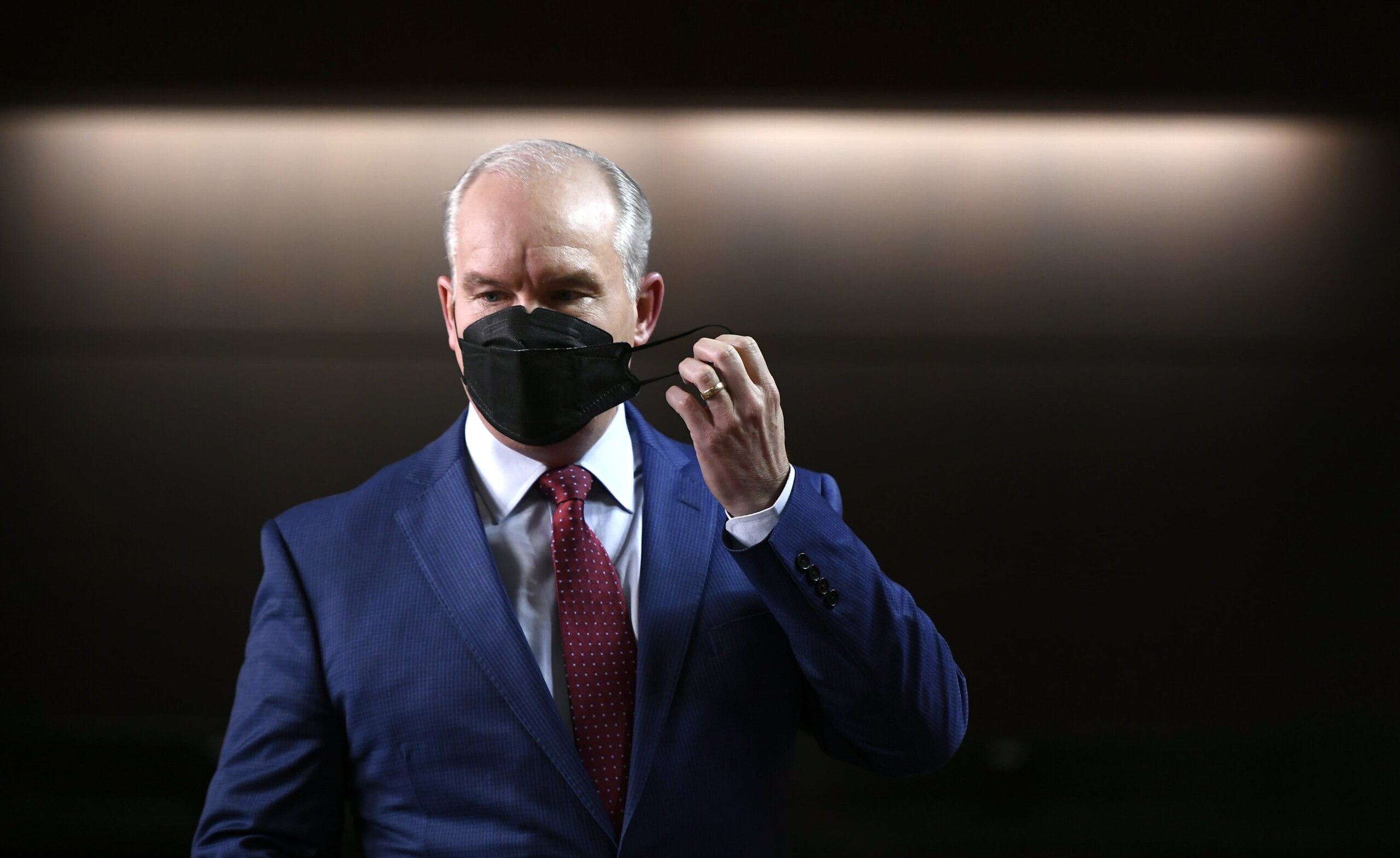

 Why you can trust Xtra
Why you can trust Xtra